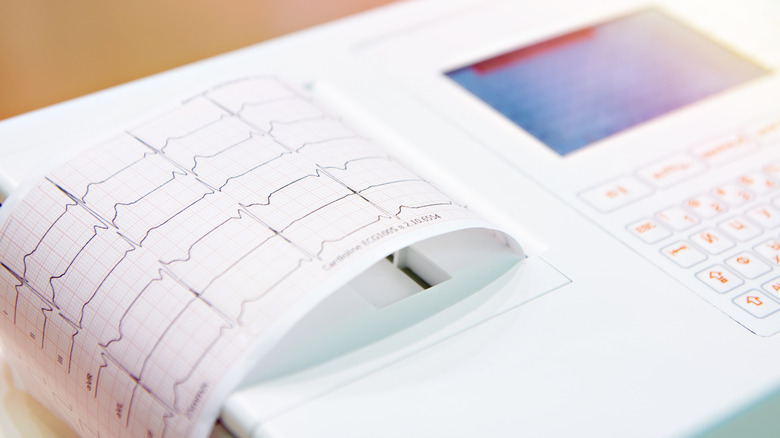Fetty Wap's Daughter's Cause Of Death Explained
Rapper Fetty Wap's 4-year-old daughter, Lauren Maxwell, died on June 24 at her home in Riverdale, Georgia (per TMZ). According to her death certificate, which was obtained by TMZ, the cause of death was a cardiac arrhythmia resulting from complications of congenital heart anomalies. Lauren was reportedly born with the heart defect. Wap and Lauren's mother, Lisa Pembroke, recently shared posts on Instagram honoring the little girl.
A congenital cardiac anomaly is an abnormality present at birth, and it can affect the regular operation of the heart (via Mayo Clinic). While some heart anomalies are mild and don't require treatment, others are more dangerous and can require multiple surgeries to correct. Cardiac arrhythmia, like the condition Lauren had, can be life-threatening. Though in Lauren's case the condition is believed to have been present from birth, cardiac arrhythmias can also develop later as the result of infection, fever, chemical imbalance, or scarring after surgery (via Cleveland Health Clinic).
What are cardiac arrhythmias?
Cardiac arrhythmias change the regular rhythm at which the heart beats, and can range from harmless to serious (via Cleveland Health Clinic). Arrhythmias that cause the heart to beat too fast are called tachycardia. Arrhythmias that cause the heart to beat too slow are referred to as bradycardia. Sometimes the heart beats irregularly, causing the heart to skip a beat. All of these conditions cause irregular blood flow through the heart and body, which can damage the heart, brain, kidneys, and liver.
Treatment for cardiac arrhythmias ranges from medicine to surgery, which all aim to help the heart beat regularly. Radiofrequency ablation is often used to treat tachycardia. This involves catheterizing the area on the heart where the arrhythmia begins, to kill the tissue where the problem is originating. In other instances of arrhythmia, treatment can involve giving the heart an electrical shock, which can cause it to return to a normal rhythm. Pacemakers and cardiovascular defibrillators can be implanted near the heart to deliver electrical pulses or shocks that help the heart maintain a normal rhythm.


